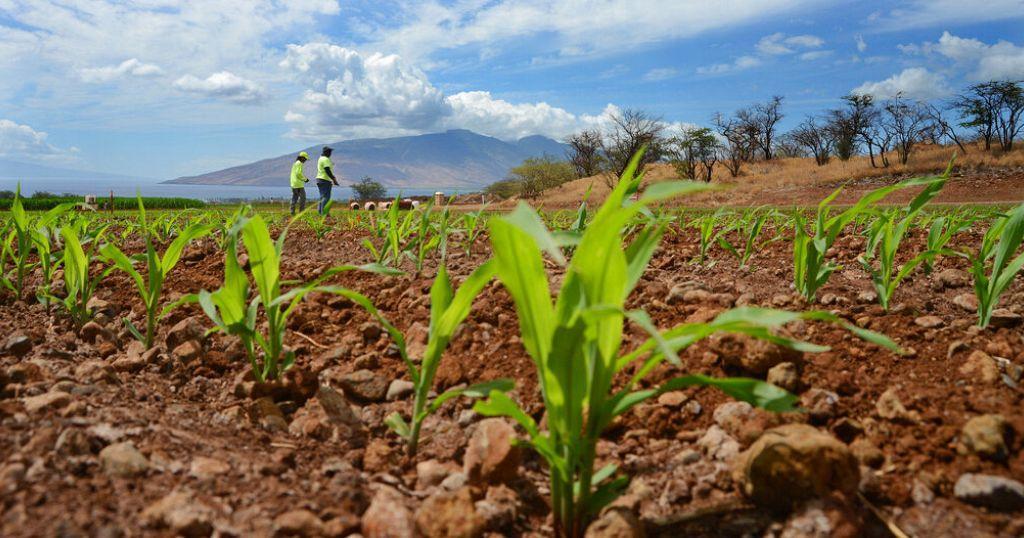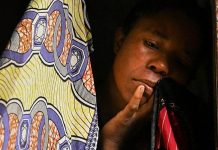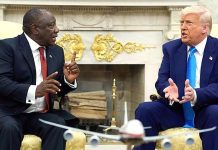Africa-Press – Kenya. The Kenyan government’s decision to authorise the import of genetically modified maize, after a ten-year ban, has triggered a wave of misinformation in this East African country, fuelled by sweeping statements by rival politicians.
In October, the administration of President William Ruto, who is due to be elected in August 2022, authorised the import and cultivation of genetically modified organisms (GMOs), which had been banned since 2012, in particular to deal with the historic drought ravaging the Horn of Africa.
Although the courts have suspended the decision, pending a ruling on an appeal by a farmers’ association that considers it illegal, Kenyans “are exposed to the worst possible misinformation” about GM crops, laments a recent study by the Alliance for Science, a project funded by the Bill & Melinda Gates Foundation.
The main source of false or misleading comments on this subject are statements by “leading Kenyan politicians”, which are then relayed by the media, according to the report.
“Both sides in this debate, those in favour of GMOs and those against, have to some extent propagated this type of misinformation”, says Anne Maina, coordinator of the Kenyan Biodiversity and Biosafety Association (BIBA).
Historic opponent Raila Odinga claimed in a public speech on 7 May, the video of which went viral on Facebook, that eating food from GM crops would make men grow breasts and women testicles.
Experts, including those from the European Food Safety Authority (EFSA), consider that there is no scientific evidence of sex changes in humans caused by eating GMO food.
As for the World Health Organisation (WHO), it states that GM foods available on the market comply with safety regulations and are unlikely to prove harmful.
– Fighting” –
More than a decade ago, when he was Prime Minister, Mr Odinga was rather in favour of GMOs. But he explains that he relied on “limited information” at the time and is now convinced that they cause mutations.
Ekuru Aukot, a candidate in the 2017 presidential election, wrote last year on his Twitter account, which is followed by 350,000 people, that lifting the ban on GMO imports was tantamount to “feeding people poison in the name of saving their lives”.
In contrast, President Ruto, himself a former Minister of Agriculture, ventured in a television interview in January that South Africa and the United States were “100% GMO”.
In reality, South Africa has only authorised three GMO seeds, while American supermarkets sell organic produce alongside GMO products clearly labeled as such.
“In Kenya, we have politicians whose main activity is fighting. Since the current president has said that GMOs are safe, (his opponents’) game is logically to oppose them”, comments Joel Ochieng, a leading researcher in agricultural biotechnology at the University of Nairobi.
The biggest health concern linked to GMOs is the toxic effects of using the glyphosate-based herbicides that are often associated with them, such as Roundup,” he points out.
In 2012, Kenya banned the cultivation of GMOs, in particular, to protect small farms, which are in the majority in the country, where agriculture is the leading economic sector, accounting for 21% of GDP, according to official statistics.
This decision earned him criticism from the United States, a major producer of GMOs.
Festus Kavita, a farmer from Machakos, about 65 km south-east of Nairobi, the capital, fears that the political jousting is overshadowing the country’s problems.
“It’s a lose-lose debate in my opinion”, he sighs, “because it misses the real solutions”.
For More News And Analysis About Kenya Follow Africa-Press






